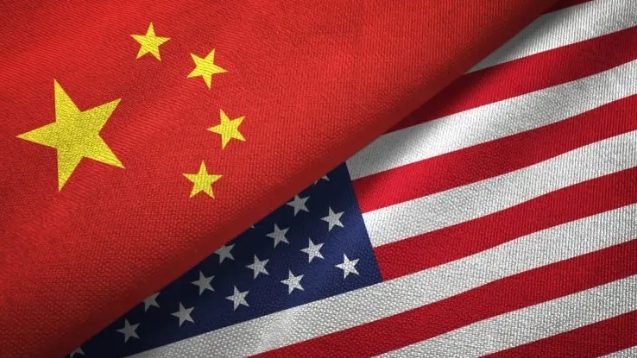In recent weeks, escalating geopolitical tensions between Russia and the West have prompted the US to impose additional sanctions on Russia and contemplate imposing sanctions on China, a fellow member of the BRICS bloc. This reaction stems from China’s collaboration with Moscow and its efforts to lessen reliance on the US dollar.
Responding to the heightened sanctions, Russia has hastened its de-dollarization endeavors by suspending trading in US dollars and euros on the Moscow Stock Exchange. This decision signifies a notable shift in Russia’s economic approach, aiming to decrease dependence on Western currencies and reinforce economic connections with other BRICS nations.

The potential sanctions on China could have extensive repercussions on the global economy, given China’s significant trade ties with many Western nations. This scenario underscores the escalating competition for economic and geopolitical influence between the West and the BRICS block.
The de-dollarization initiatives led by Russia and other BRICS nations could potentially lead to a substantial decrease in the utilization of the US dollar as a global reserve currency, which could profoundly impact the global economic framework. The evolving situation underscores the increasingly contentious geopolitical environment, with substantial ramifications for the global economy.
BRICS Considering Sanctions on China
The BRICS coalition, comprising Brazil, Russia, India, China, and South Africa, has been actively endeavoring to lessen reliance on Western currencies, notably the US dollar, and advocate for the use of local currencies in international trade. This move is perceived as a challenge to the supremacy of the US dollar in global trade and finance.
In response, the Western nations, particularly the G7, are contemplating imposing sanctions on China for backing Russia in the Ukraine conflict. The G7 views China’s backing of Russia as a “long-term threat” to their security and expresses apprehension about China’s support of Russia. According to the Financial Times, this matter will be deliberated during the G7’s concluding meeting of its group summit in Puglia.
The US has been vocal about China’s support in enabling Russia’s weapon production, labeling it a “critical issue.” President Biden has recently expressed concerns about the two nations’ collaboration, asserting that China’s support empowers Russia to develop various arms. These apprehensions from the Biden Administration illustrate the strained relations between the US and China and potential implications for global security.
The BRICS coalition has been championing the use of local currencies in international trade and has ratified a significant trade agreement to encourage the utilization of their currencies. This move poses a challenge to the dominance of the US dollar in global trade and finance. As the tensions persist between the BRICS coalition and the West, the outcome will carry considerable implications for the global economy and the future of international trade and finance.





